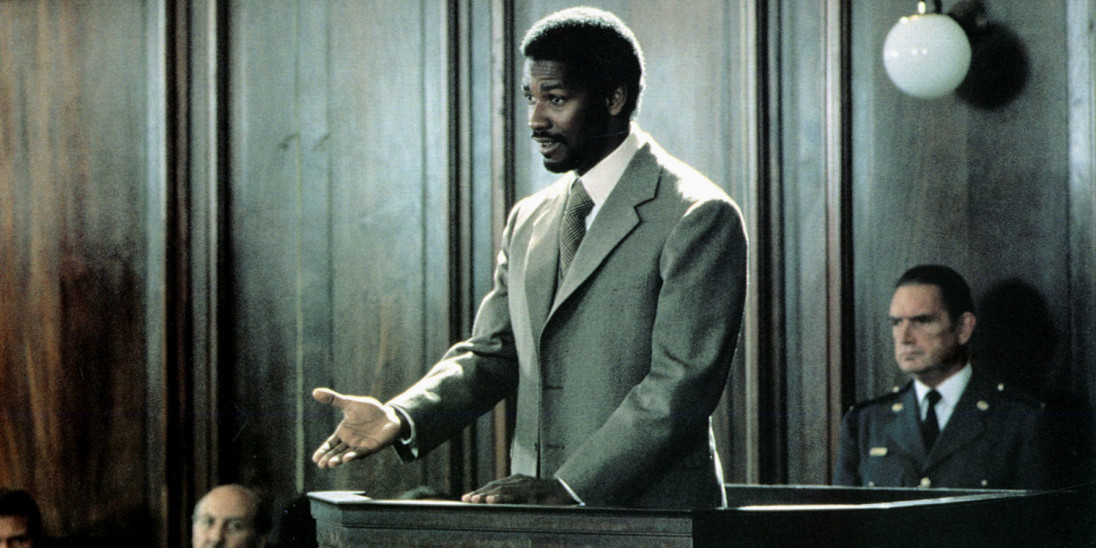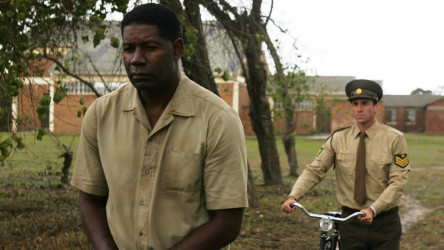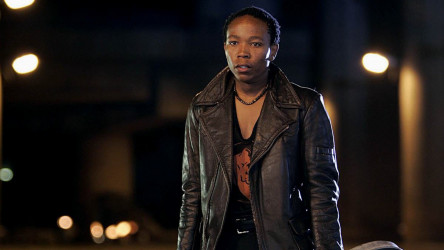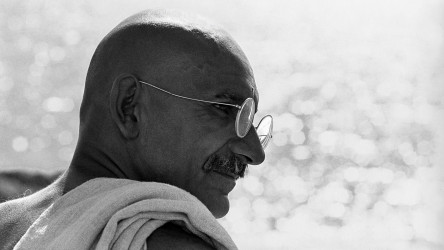Cry Freedom(1987)
The story of Steve Biko, killed in police custody in apartheid South Africa, and the friend determined to honour his name.
Certificate
Age group12+ years
Duration151 mins


It’s very difficult to believe that Apartheid ended in 1994. At the time of writing, that is just 21 years ago. The terrible segregation between the blacks and whites in South Africa was still going on just two decades ago. Cry Freedom focuses on a particular story within the terrible time, and that is of Donald Woods and Steve Biko – and their story is fascinating. Donald Woods, played by Kevin Kline, is an editor of a newspaper. For more information about the demolition of a shanty town, he goes to meet Steve Biko, played by Denzel Washington, a man banned by the government to never leave a certain area in King William’s Town, who is also a hero for the segregated black people. Denzel Washington is phenomenal as Biko, and gives a very real performance. He never feels showy, and doesn’t have a big ‘give me an Oscar’ breakdown half way through the film – he just feels like a real human being going through these horrific circumstances, and he is remarkable, particularly in a court scene in which he delivers some brilliant quotes with such sincerity and honesty. Kevin Kline has the arguably more difficult job of playing Woods, as he has to make the character memorable against characters like Biko. Kline manages this, and gives an understated performance that is very relatable. Kline portrays Woods with such likeability that you can understand what he’s going through and feel really worried for him as some of the events near the end of the film unfold, in which his acting is particularly excellent, as even though what’s happening is totally astonishing, his performance still feels real. That’s the best thing about the film really though. Cry Freedom always feels so genuine and relatable, so when anything happens, you always feel really anxious for what happens next. It’s actually a very intense film, and sometimes really emotionally upsetting. For instance, a depiction of the Soweto uprising of 1976, in which over 700 black school children were killed after protesting about learning the language Afrikaans in school, is absolutely devastating. Richard Attenborough brilliantly directs the scene, keeping the camera on what’s happening for the perfect amount of time for maximum emotional impact. Music is excellently used too, and the turn from the scene being really uplifting to completely devastating is depicted really well. The film, however, at 151 minutes, is extremely long. As a result, it can lose your attention at times. Not all the scenes were absolutely necessary either, and if some had been cut, it would be a much leaner biopic and wouldn’t have lost anything from that. Also, a type-writer sound-effect is used in the opening credits and throughout the film and it is very misjudged and can really take you out of the moment. Verdict: Cry Freedom isn’t a perfect biopic, but it does have some really affecting scenes and two outstanding lead performances that make it a really important film about the terrible Apartheid that plagued South Africa.
Print this review
This touching and often harrowing drama tells the story of an unlikely friendship between Nelson Mandela and a racist prison guard.
Certificate

Hard-hitting, Oscar-winning film about a South African gangster who finds himself in charge of a baby.
Certificate

Oscar-winning biopic of the Indian civil rights leader who led a non-violent campaign to liberate India from British rule.
Certificate